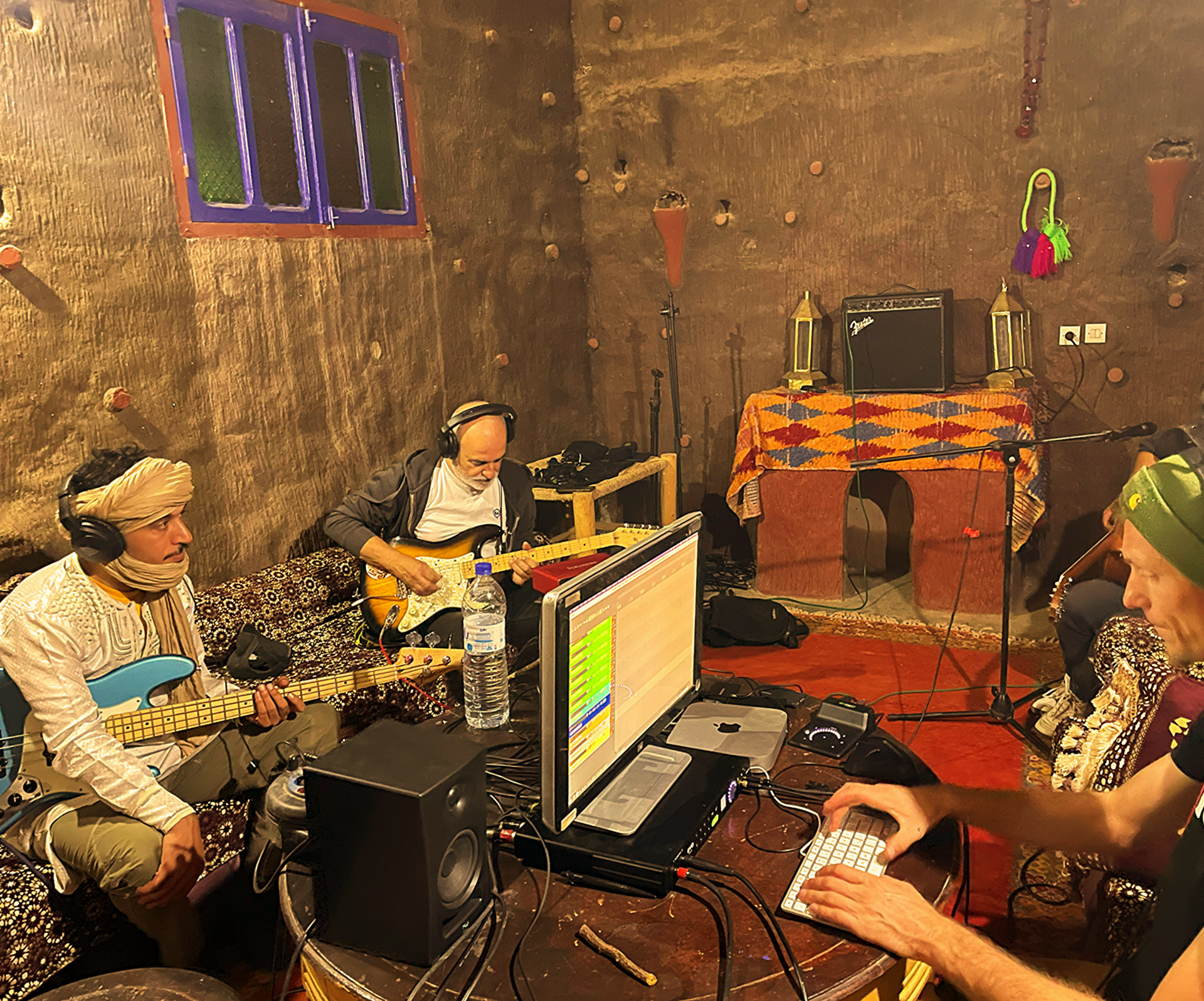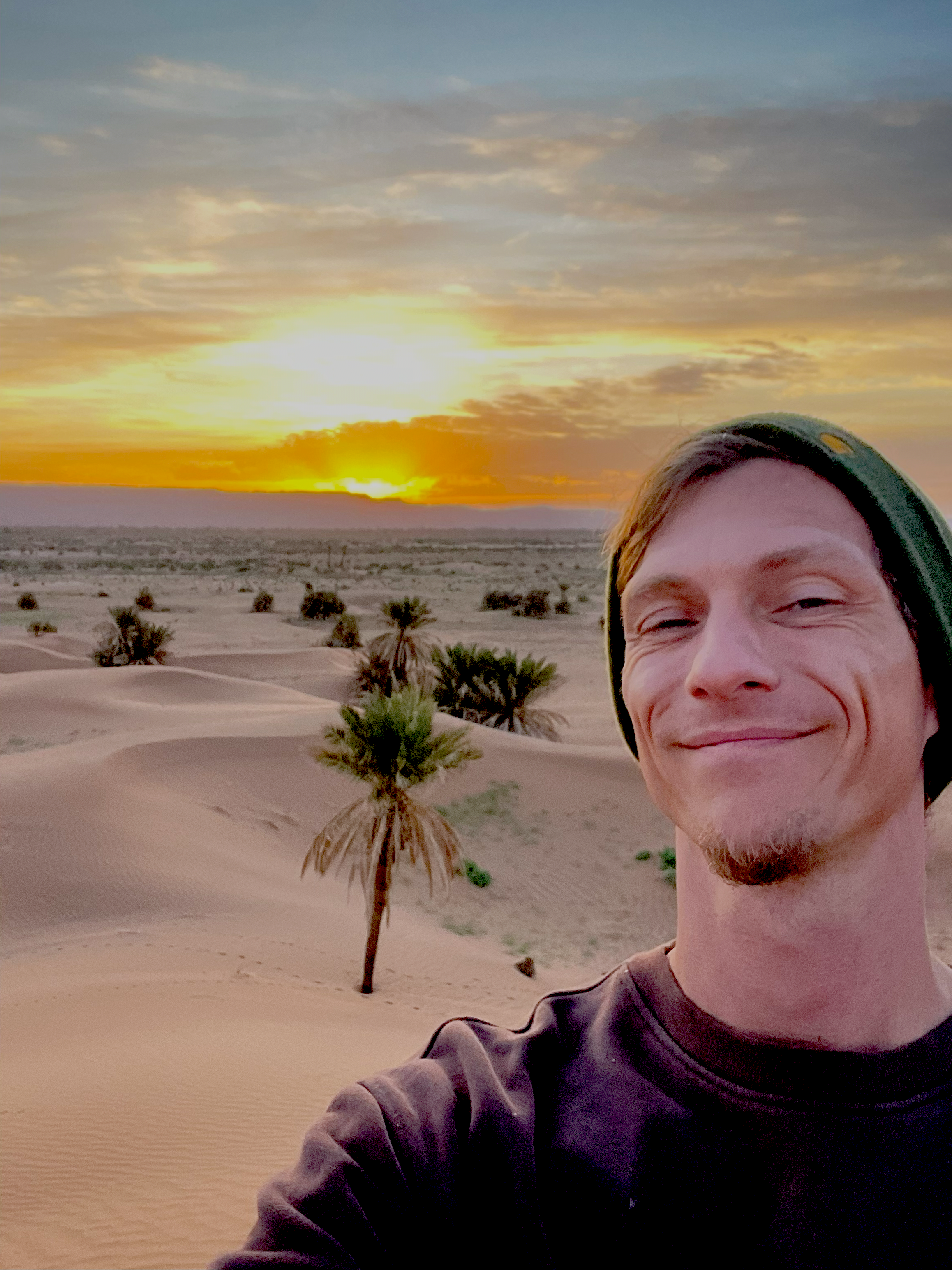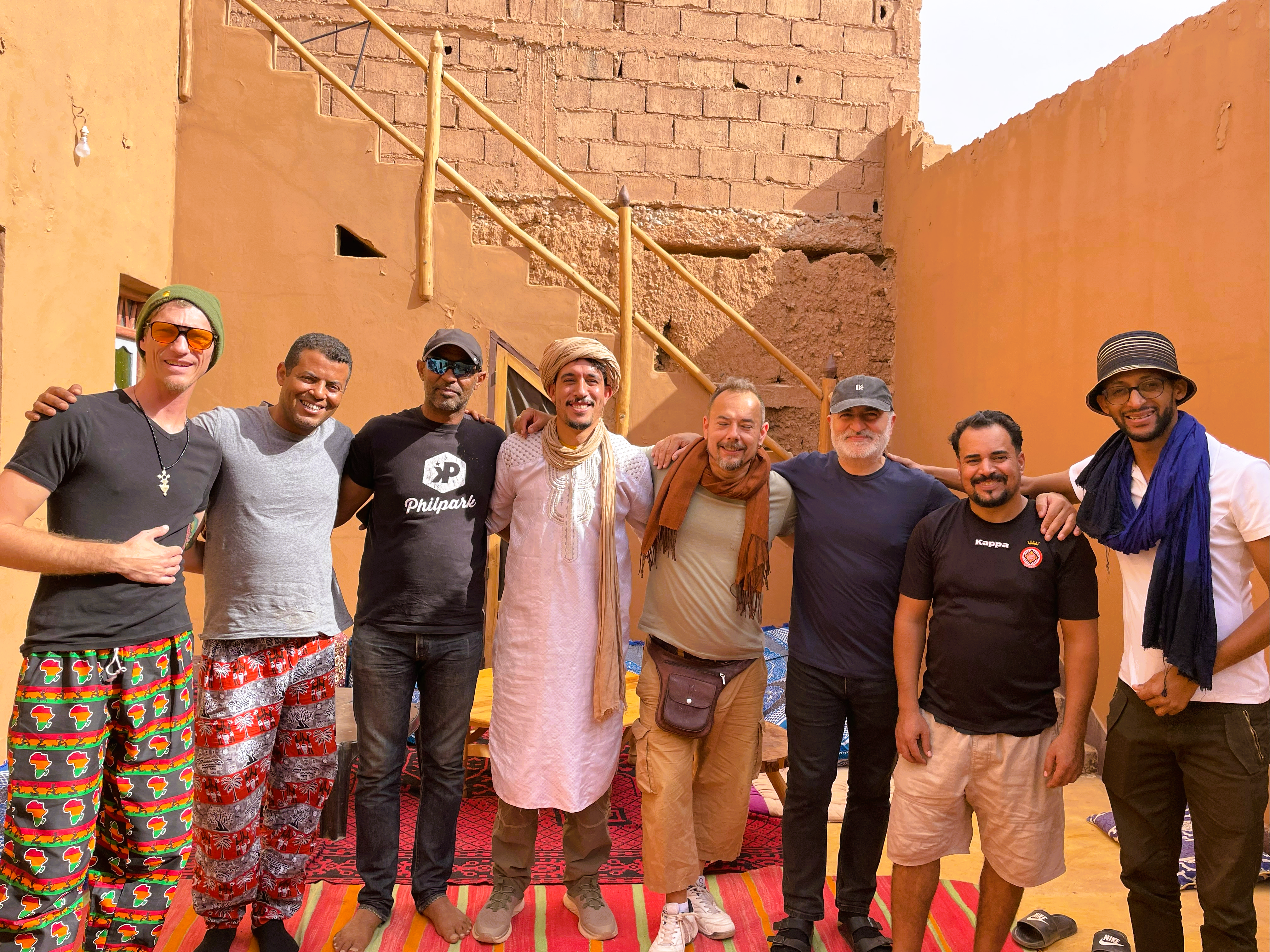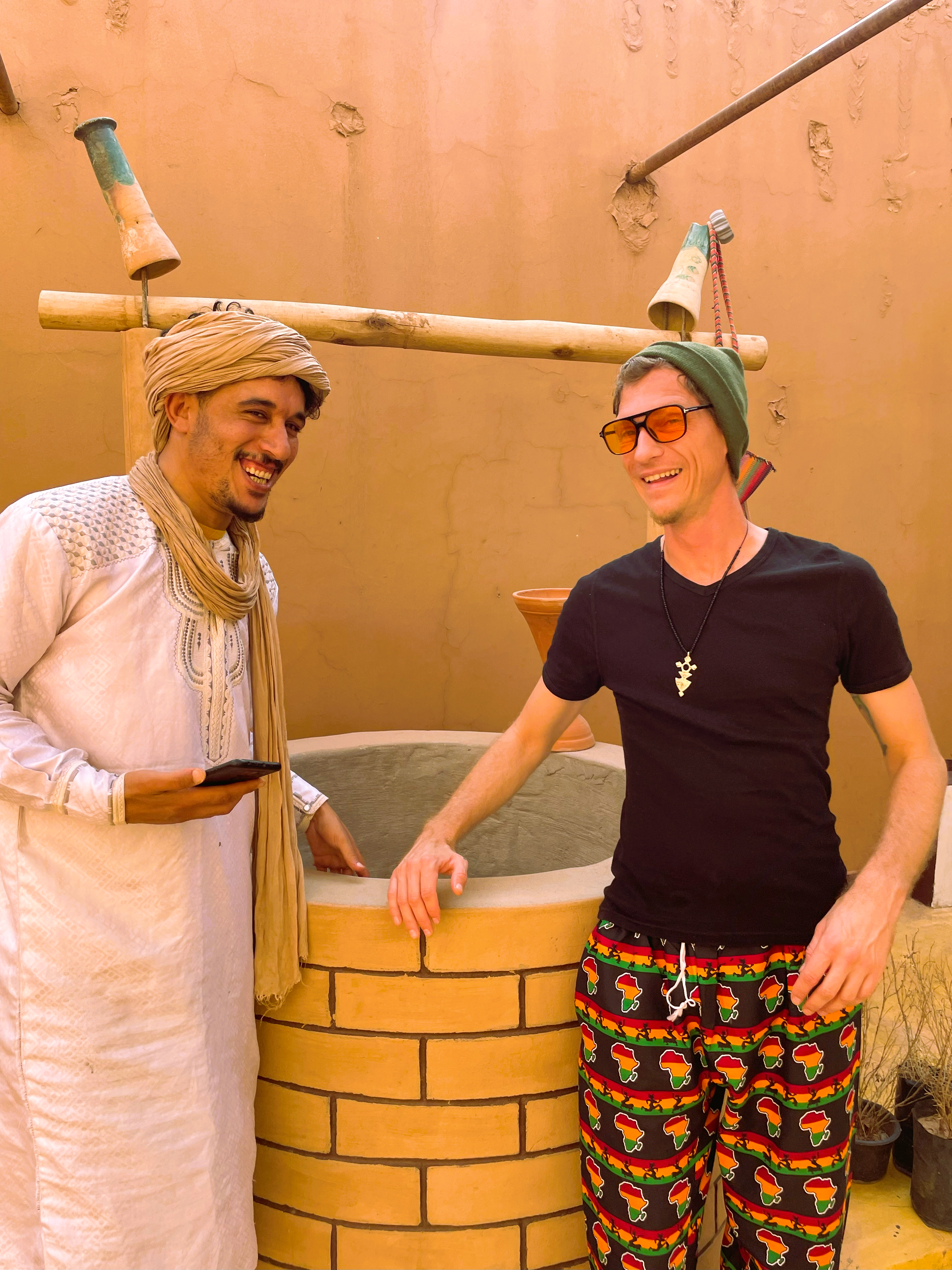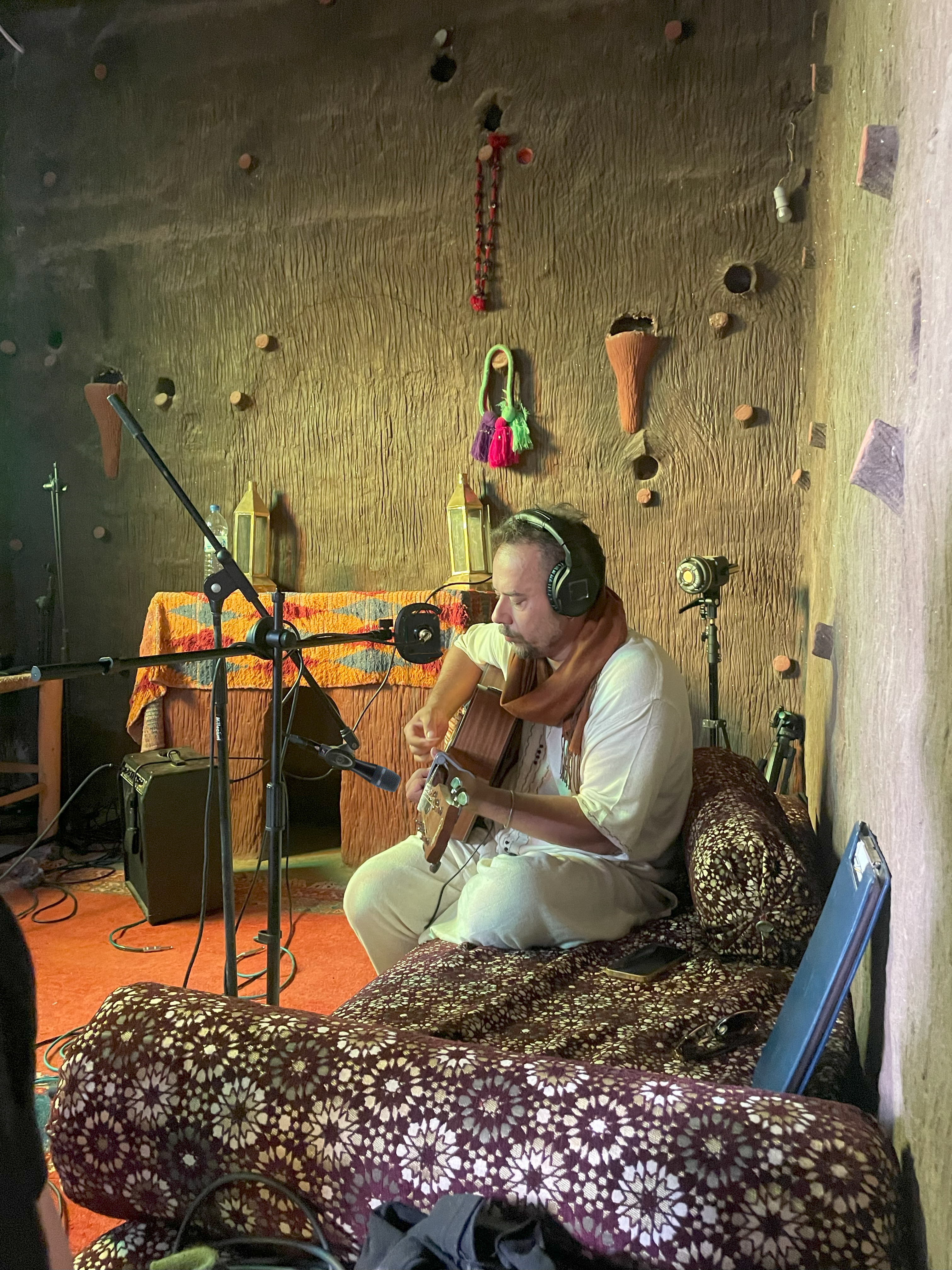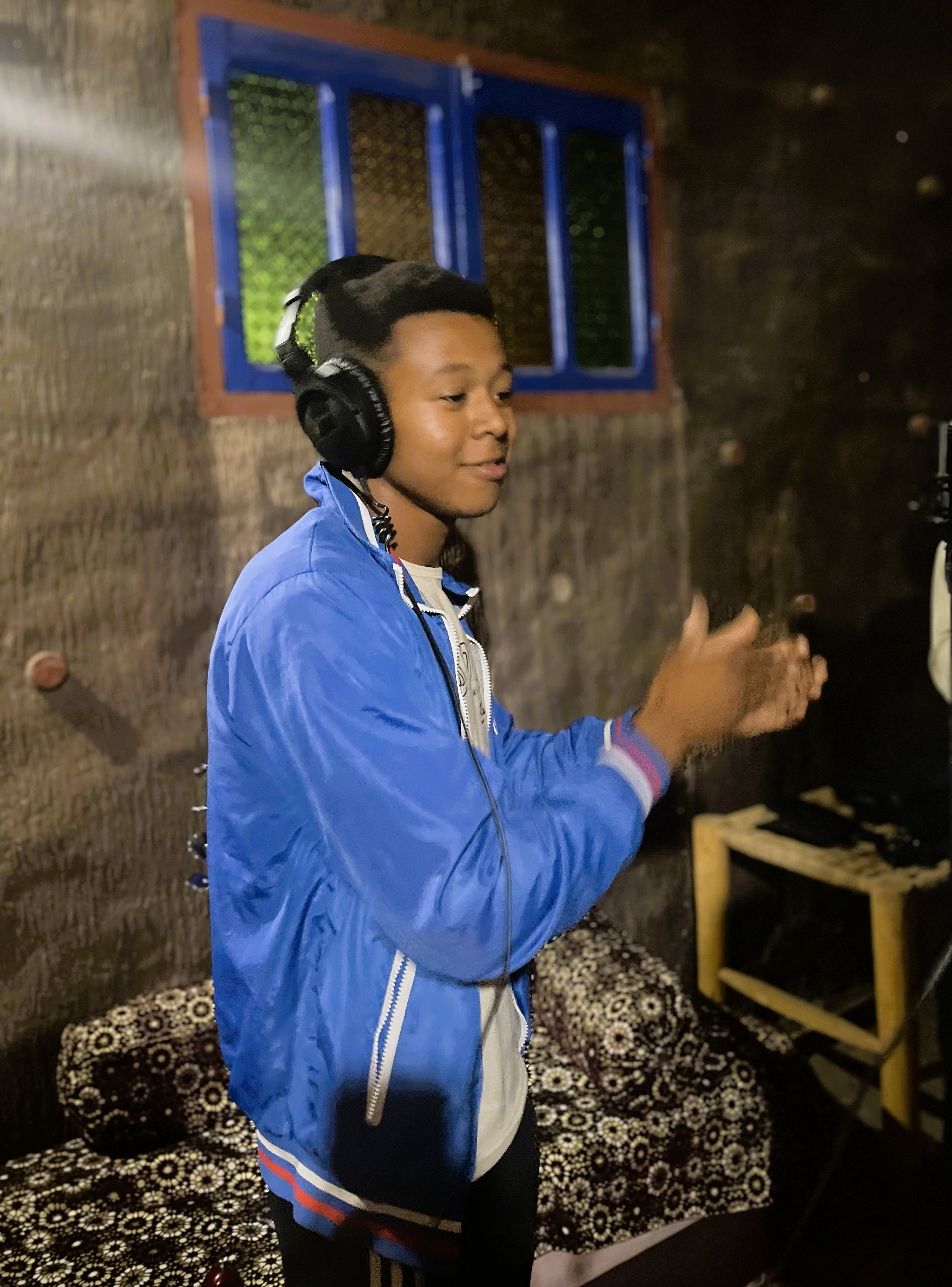Adrian "Ady" Parzentny is not your typical music producer. While many in the industry chase fame and fortune in major recording studios, he’s carved a unique path, one driven by curiosity, a love for music, and a deep commitment to community.
Instead of settling in a high-end studio in a music capital, he chooses a life of travel and cultural immersion. His journey has taken him from the vibrant punk rock scene of his native Poland to the remote villages of the Sahara Desert. Along the way, he's recorded a diverse range of artists, from traditional Berber musicians to singers giving their cultural sound a modern edge, and even established a music production school in Morocco.
In this interview, Ady discusses his unique approach to music production, his passion for world music, and his dedication to education and community building.
How would you describe what you do?
I'm a mobile record producer, basically. It's a balance between social projects, traveling and recording bands, and commercial projects.
That’s a diverse resume. Why not settle into a local studio and work with familiar artists?
Curiosity and love for music. Music was always my community. Music never ends. For me, it's an endless topic that feeds my endless curiosity. Every session is special.
How did you get your start in professional audio engineering?
It was 2017. I started to watch tutorials online and bought my first mics. I started to record local metal bands for free. Then I got better bands and started to earn money, but it was a very closed-off society. People didn't want to let me in.
I thought, "I'm turning 30. I'll try to imagine my own path. I like the sun, traveling, world music, and recording. Maybe van life is the answer."
We did a test run in 2018 in a small car. We drove down to Morocco and asked people if they wanted to record. I came back with 12 records, mixed them, and we put them out online. They had 450,000 views. I thought, "That's what I want to do." It was incredible and exciting. The concept worked.
You've been all over the world recording all sorts of musical styles and cultures. What is it about "world music" that fascinates you?
Music carries the DNA and history of any culture. I've recorded 120-year-old compositions. Some of my favorite genres are desert blues music from the Sahara. I love Greek music and Bulgarian music. I'm just always blown away when I'm in a different country. It's crazy.
Education also plays a significant role in your work. You even work with Produce Like a Pro on YouTube.
Yeah, I've been working with them for four or five years. I create music production tutorials for their channel, teaching people how to mix, master, and finish their tracks. It's been a great experience. I'm not over explaining things to show like, "I know all of this." I'm guiding people on how to figure out something on their own. I felt like I had a gift for this.
I love teaching. I love to get people to start something and actually do things. 70% of producing is creativity. No one hears or feels music the same way you do, so I'm guiding them to figure things out on their own and explain things simply.
I love seeing the results, like in our school. I bring the equipment, show them the basics, and they figure out the rest. They decide if they like it and explain why to me. They get it. The next time, they can do it on their own. It's one of the most beautiful things.
Speaking of your music school, you recently established a new one in Morocco. How did that come about?
I had the idea in February and said, "Don't overthink it. Make a fundraiser and see what happens." After 10 days, the fundraiser was fully funded. More companies came in without even requesting anything back.
I just had this idea but didn't know what was going to happen. I had a team in Morocco, but they didn't do anything. I called my friends in the desert and asked if they had a place where we could do it. On day one, I had a house. I flew there, rented a car, and went down with a couple of people.
Once the school was open, I brought the equipment. I went to this Visa For Music event and invited all the bands to our school. The first bands came and we recorded them. We took photos, had jam sessions, and recorded local bands and stars. They shared it on Instagram, and the project exploded.
Talib, for instance, had been waiting four years to make his first record.
Why do you still choose to travel and record in remote locations in a world where virtual sessions are so common?
It's exciting. I'm always on the move, and it's easy to have my studio with me. I want to use this opportunity to see the world and do what I love. I have projects all over the world and can connect with them remotely, fix mixes in real-time, and move on. I see another country and culture and find what I can do there. The best opportunities happen through these travels.
What are some of your essential pieces of gear when you travel?
Various models of
Sennheiser headphones are an integral part of what we do when we travel. Not only do we rely on them for mobile recording, mixing and mastering, but they are also incredibly reliable on the road.
You've worked with the Habibi.Works to record music at refugee camps, as well as many other places many Westerners rarely see. What draws you to connect with musicians in these environments?
I learn from them. Their positivity, joy, and love for music are inspiring. In the refugee camps, we wanted to bring a little bit of normality back into their lives with music. This means everything to me.
The Musical Thread Running Through Every Culture
Ady's story is a testament to the power of music to transcend borders and bring people together. We hope his dedication to education, community building, and exploring diverse musical traditions is an inspiration to aspiring producers and music lovers alike. He reminds us that music is not just a product but a powerful tool for connection, expression, and joy.
